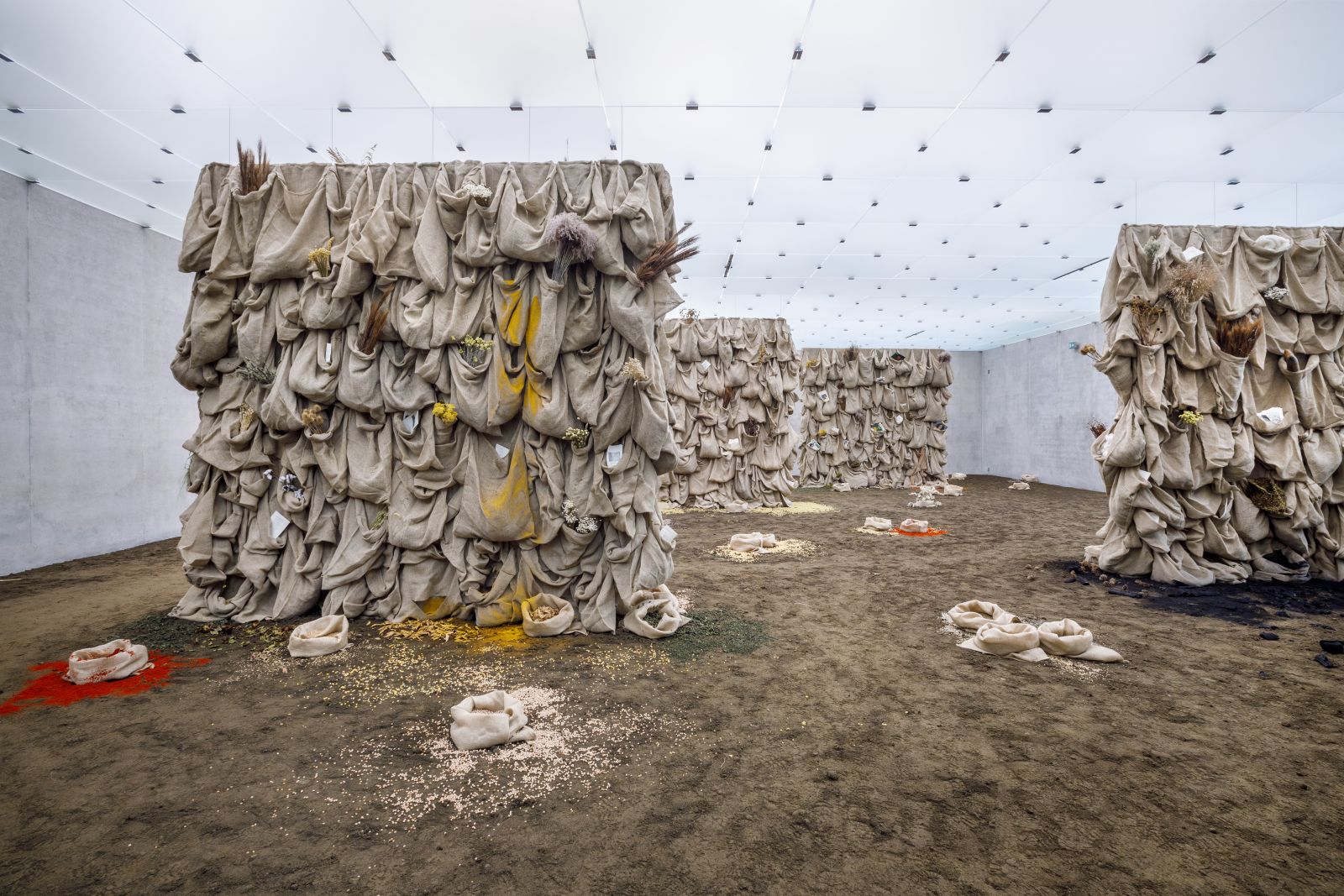Solange Pessoa: Pilgrim Fields art review – An assault on the senses
The Brazilian artist has created a sensuous, alien coastal landscape

Solange Pessoa’s new exhibition has a gentle but unmistakeable odour to it. It might remind you of a walk around a Scottish Highland coastline or a little Hebridean island: a mixture of sheep, seaweed and wildflowers. As you approach one of the big, knotty piles of raw wool that line the main gallery space, or a gathering of moss, kelp or chamomile, you might begin to figure out where the overall musk is emanating from and to pick an olfactory route around the 25 interlinked sculptures-cum-installations.
Born in the lush Minas Gerais province of south-eastern Brazil in 1961, Pessoa is evidently an artist with a deep, sensual connection to landscape. Her sculptures somehow demand not only to be seen but to be touched, sniffed and lived with in a more all-encompassing way. This latest collection includes works in ceramics, bronze and textiles, mostly ovoid, tubular or spherical, like giant seedpods or fruiting bodies, nestled in blankets of real-life leaves, flowers, reeds and animal fur.
There is a by-played narrative quality to the show, which proposes some alternative universe in which these pieces of art are living, organic bodies, propagating across the gallery space as if it were an interlinked ‘field’ of intelligent life-forms. Indeed, the work is almost sci-fi in connotation, suggesting some hyper-fecund alien world populated with giant squashes and pulses. In the venue’s Hidden Garden, a set of works in oiled and earth-mottled textiles sits at the base of a grove of pine trees, like mysterious animal droppings or nuggets of sticky sap.
If there’s a criticism to draw, it’s that the framing of this exhibition leans on a series of fairly paradigmatic ideas within ecological art: deep time, ritual, more-than-human life. Not much new ground is broken here critically speaking, but when an exhibition is this lovely to experience, it doesn’t seem to matter much.
Solange Pessoa: Pilgrim Fields, Tramway, Glasgow, until Sunday 5 October.